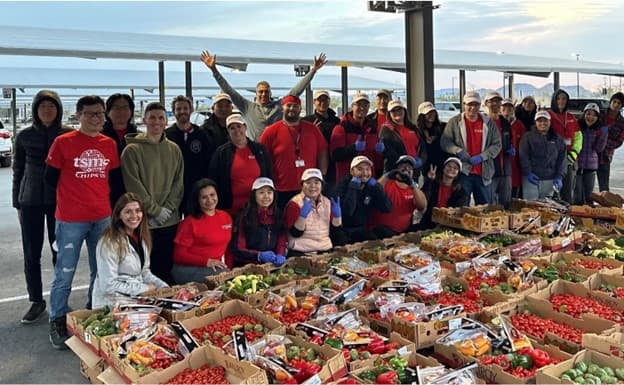
The carbon footprint of UK holidaymakers has become much more of a concern according to research. The benefits to the environment resulting from the massive reduction in travel experienced over the last two years has led to a greater intent for many Brits to holiday ‘at home’ again this year rather than travel abroad.
Mintel’s report on Domestic Tourism*1 found that more than half (53%) of UK adults planned to take a domestic holiday in the 12 months that followed August 2021, with demand expected to surge from this Spring onwards.
The same Mintel report found that nearly a fifth (18%) of those who plan to spend more of their holidays in the UK want to do it to limit their carbon footprint and Mintel’s Family Holidays report*2 found that 1 in 6 (14%) parents now see carbon reduction as one of their five top factors when considering their choice of family holiday. Adding to the focus on the environment, the Mintel research also found that more than a quarter (28%) of British adults said they prioritise the environment more now than they did before the pandemic.
Short term rentals provide an attractive accommodation choice for those environmentally-conscious guests. Factors such as reusing existing homes, not having to travel too far thus reducing pollution and fuel usage, being able to buy local produce and spending money in local communities all appeal.
Merilee Karr, Chair of the STAA and CEO of UnderTheDoormat, commented, “Having seen the benefits to the environment from the reduction in travel and the positive impact their holiday pound has had on the local communities in which they stay, many UK staycationers are now factoring in their carbon footprint when it comes to selecting a holiday destination and their choice of accommodation. Short-term rentals are a great example of recycling existing assets for the mutual benefit of guest and host. They offer flexible booking terms, in locations that are often less well served by other accommodation types and are able to cope with larger groups of families or friends for a ‘home-from-home experience.”
A report by Euromonitor*4 showed that the self-contained accommodation sector, which includes short term rentals, was ahead of other sectors in terms of the value of sales recovery for 2021. Short-term rentals are forecast to be one of the key drivers of the UK’s recovery and the sector is expected to reach 2019 levels, of around £2.1bn, in 2022.
A survey conducted by STAA member Sykes Holiday Cottages*3 found that, on average, UK holidaymakers are planning to take two staycations in the next 12 months, with almost half (46%) saying that limiting their environmental impact is a key consideration when choosing a UK break over foreign travel.
Graham Donoghue, CEO at Sykes Holiday Cottages, said: “Bookings for our holiday lets this year are through the roof, showing that the staycation boom is here to stay. Brits are looking to make the most of what our beautiful country has to offer and the self-catered option still appears to be a popular choice. Clearly environmental considerations are playing a role in the decision to staycation too. This is something we were starting to observe before the pandemic but it has really taken off over the last two years.”
Quality in Tourism runs a quality grading scheme for the tourism and hospitality sector called REST (Responsible, Ethical & Sustainable Travel). The scheme includes on-site, independent grading assessments, designed to objectively quantify each business’s commitment to the environment, their visitors, their staff and their suppliers. Businesses are benchmarked against four cornerstones, provided with a quality mark and offered guidance and support to deliver future improvements and change.
Deborah Heather, CEO, Quality in Tourism, said, “The short-term rental concept of recycling a home that will enable guests to contribute economically to the community of that home is the ‘go-to’ solution for tourists looking for sustainable accommodation options. Through our partnership with the STAA, Quality in Tourism has seen demand for our REST accreditation increase by over 300% in the past 2 years. It’s a really positive step in communicating a clear message to potential guests of the green credentials and underlying ethics of an owner and their property.”


